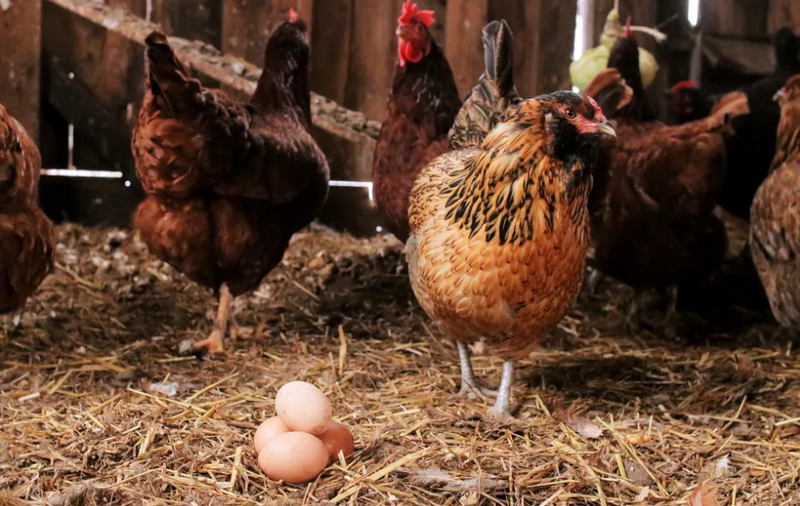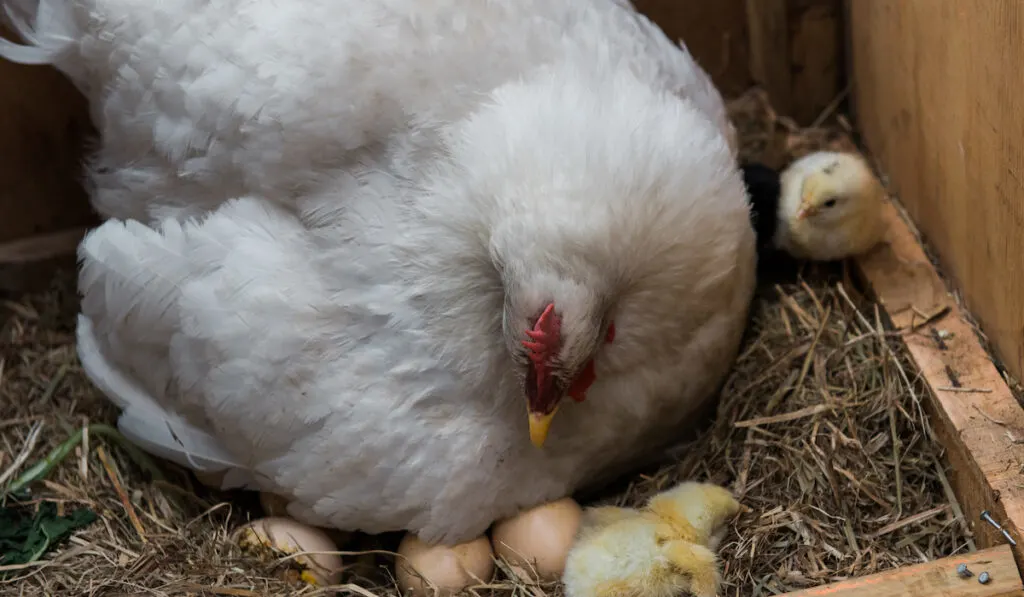Ever wondered if hens can lay eggs without a rooster? Well, the answer is yes! Hens are natural egg-laying machines, and they don’t need a rooster to get the job done. Whether you’re a backyard chicken enthusiast or just curious about the science behind it, this guide has got you covered. So, buckle up and let’s dive into the fascinating world of egg production!
Hens laying eggs is one of nature’s wonders, and it’s something that happens regularly, even without a rooster around. The process is purely biological, and it’s fascinating how these feathered ladies keep the cycle going. In this article, we’ll explore the science behind egg-laying and answer all your burning questions about hens and roosters.
But wait, there’s more! Understanding how hens produce eggs without a rooster isn’t just about biology; it’s also about practical knowledge for chicken keepers. If you’re planning to raise chickens or already have a flock, this guide will help you make informed decisions about your feathered friends. Let’s get started!
Understanding the Basics of Egg Production
Let’s break it down. Hens are designed to lay eggs, and they do this as part of their natural reproductive cycle. It’s kind of like a clock ticking inside them. Every 24 to 26 hours, a hen releases an egg yolk from her ovary, and if everything goes smoothly, an egg is formed. Simple, right? Well, not exactly, but we’ll get to that in a sec.
Now, here’s the kicker: a rooster isn’t needed for a hen to lay eggs. The eggs that hens produce without a rooster are unfertilized, meaning they won’t hatch into chicks. But hey, that’s totally fine if you’re just looking for fresh eggs for breakfast. Who needs chicks when you’ve got omelets, right?
How Do Hens Lay Eggs Without a Rooster?
Hens have a reproductive system that’s designed to lay eggs regardless of whether a rooster is present. Here’s how it works: the yolk is released from the ovary and travels through the oviduct, where layers of albumen (egg white), membranes, and the shell are added. Voila! An egg is born.
This process is automatic and happens whether or not a rooster is around. So, if you’ve ever wondered why your hens keep laying eggs even when there’s no rooster in sight, now you know. It’s all about biology, baby!
Why Do Hens Lay Unfertilized Eggs?
Okay, let’s talk about the science behind unfertilized eggs. When a hen lays an egg without a rooster, the egg lacks the genetic material needed for a chick to develop. Think of it like a recipe missing a key ingredient. Without sperm from a rooster, the egg can’t become a chick.
But here’s the cool part: unfertilized eggs are just as nutritious as fertilized ones. They’re packed with protein, vitamins, and minerals, making them a perfect addition to your diet. So, if you’re not into raising baby chicks, unfertilized eggs are the way to go.
What Happens When a Rooster is Present?
When a rooster is in the picture, things change a bit. If a hen mates with a rooster, the sperm fertilizes the egg, and the resulting egg has the potential to develop into a chick. But here’s the thing: not all fertilized eggs will hatch. Temperature, humidity, and other conditions play a big role in determining whether an egg will become a chick.
So, if you’re not planning to hatch chicks, you don’t need a rooster. Simple as that. Hens will happily keep laying unfertilized eggs, and you can enjoy them without worrying about baby chicks popping up in your backyard.
The Role of Light in Egg Production
Light is a crucial factor in egg production. Hens need about 14 to 16 hours of light per day to maintain consistent egg-laying. This is why egg production tends to drop during the shorter days of winter. But don’t worry, chicken keepers have a trick up their sleeves: artificial lighting.
By adding a light source to your coop, you can encourage your hens to keep laying eggs year-round. Just make sure to use a timer so the lighting schedule stays consistent. Too much or too little light can disrupt their natural cycle, so finding the right balance is key.
How to Use Artificial Lighting Effectively
If you decide to use artificial lighting, here’s what you need to do:
- Install a timer-controlled light in your coop.
- Provide 14 to 16 hours of light per day.
- Use a soft, warm light bulb to mimic natural sunlight.
- Monitor your hens’ behavior and adjust as needed.
Remember, artificial lighting is a tool, not a requirement. If you’re okay with a drop in egg production during the winter months, you can skip the lights altogether. It’s all about what works best for you and your flock.
Nutrition and Egg Production
A hen’s diet plays a huge role in her ability to lay eggs. A balanced diet rich in protein, calcium, and other essential nutrients is crucial for maintaining healthy egg production. Think of it like fuel for their egg-laying machine. Without the right nutrients, the machine won’t run as smoothly.
Calcium, in particular, is super important for forming strong eggshells. If a hen doesn’t get enough calcium, her eggshells might become weak or brittle. This can lead to cracked eggs and other issues, so it’s important to make sure your hens are getting enough of this vital mineral.
Tips for Feeding Your Hens
Here are some tips for keeping your hens well-fed and egg-laying:
- Provide a high-quality layer feed that’s rich in protein and calcium.
- Offer crushed oyster shells or limestone as a calcium supplement.
- Give your hens fresh fruits and vegetables as occasional treats.
- Make sure they always have access to clean, fresh water.
By keeping your hens well-nourished, you’ll ensure they stay healthy and productive. Plus, happy hens lay better eggs, so it’s a win-win situation!
Common Myths About Egg Production
There are plenty of myths floating around about hens and egg production. Let’s bust a few of them:
- Myth: Hens need a rooster to lay eggs. Nope! As we’ve already discussed, hens can lay eggs without a rooster. The only difference is that the eggs won’t be fertilized.
- Myth: All hens lay eggs every day. Not true. While some hens are prolific layers, others may lay less frequently depending on factors like age, breed, and health.
- Myth: Older hens stop laying eggs completely. While egg production may decrease with age, older hens can still lay eggs, albeit less frequently.
By separating fact from fiction, you’ll have a better understanding of how hens produce eggs and what to expect from your flock.
Why Do These Myths Persist?
Myths about hens and egg production often stem from misunderstandings or outdated information. In the past, people may not have had access to the scientific knowledge we have today, leading to misconceptions about how chickens work. But now, with a little research and some hands-on experience, we can set the record straight.
Factors That Affect Egg Production
Several factors can influence how many eggs your hens lay:
- Age: Younger hens tend to lay more eggs than older ones.
- Breed: Some breeds are known for their high egg production, while others focus more on meat or show qualities.
- Health: Sick or stressed hens may lay fewer eggs or stop laying altogether.
- Environment: Temperature, lighting, and living conditions all play a role in egg production.
By paying attention to these factors, you can optimize your hens’ egg-laying potential and keep them happy and healthy.
How to Troubleshoot Egg Production Issues
If you notice a drop in egg production, here are some steps you can take:
- Check your hens’ diet and make sure they’re getting enough nutrients.
- Inspect their living conditions for signs of stress or discomfort.
- Look for signs of illness or parasites and consult a vet if necessary.
- Adjust lighting and temperature if needed to create a more comfortable environment.
Remember, hens are living creatures with their own needs and preferences. By taking good care of them, you’ll ensure they keep laying eggs for years to come.
How to Choose the Right Breed for Your Flock
When it comes to egg production, not all breeds are created equal. Some are known for their high egg output, while others are better suited for meat or show purposes. Here are a few popular egg-laying breeds:
- White Leghorn: Known for their prolific egg-laying abilities, White Leghorns are a top choice for backyard chicken keepers.
- Rhode Island Red: These hardy birds are not only good egg layers but also have a friendly temperament.
- Australorp: With their dark feathers and calm demeanor, Australorps are a favorite among chicken enthusiasts.
When choosing a breed, consider your goals and the climate you live in. Some breeds thrive in hot weather, while others do better in cooler climates. Do your research and pick a breed that suits your needs.
What to Look for in an Egg-Laying Breed
Here are some things to consider when selecting a breed:
- Egg production rate
- Temperament and behavior
- Adaptability to your climate
- Health and disease resistance
By choosing the right breed, you’ll set yourself up for success and enjoy a steady supply of fresh eggs.
Conclusion: What You Need to Know About Hens and Egg Production
We’ve covered a lot of ground in this comprehensive guide, from the basics of egg production to the factors that affect it. Here’s a quick recap:
- Hens can lay eggs without a rooster, but the eggs will be unfertilized.
- Light, nutrition, and health all play a role in egg production.
- Choosing the right breed can make a big difference in your flock’s productivity.
Now that you’re armed with this knowledge, it’s time to take action. Whether you’re a seasoned chicken keeper or a newbie, there’s always something new to learn about these amazing birds. So, go ahead and share this article with your fellow chicken enthusiasts, or leave a comment below with your thoughts. And if you’re looking for more tips and tricks, be sure to check out our other articles on all things chicken-related!
Table of Contents
- Understanding the Basics of Egg Production
- Why Do Hens Lay Unfertilized Eggs?
- The Role of Light in Egg Production
- Nutrition and Egg Production
- Common Myths About Egg Production
- Factors That Affect Egg Production
- How to Choose the Right Breed for Your Flock
- Conclusion: What You Need to Know About Hens and Egg Production


